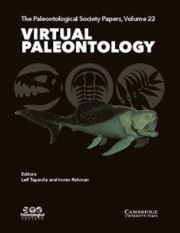Article contents
Faith of a Paleontologist
Published online by Cambridge University Press: 21 July 2017
Abstract
Evolution is the great synthesizing principle of biology and cosmology that our students deserve to know in order to understand their world most fully. Yet evolution has social Darwinism as its dark side. An evolutionism or a scientism that teaches in the name of science that there is no God, there is no soul, there is no ultimate purpose in life, and there is no such thing as free will is not the friend of society. Creationists reject evolution not in ignorance of modern science but because of the anxieties it brings. While 90% of Americans profess to believe in God, less than half the population believes in some form of evolution. Science discounts human experience, while religion is about human experience. When forced to choose between a religion that enriches human experience and an evolutionary science that ignores human experience and minimizes humans as a species, people will unhesitatingly choose the religion that gives meaning to their daily struggles. That choice is not a necessary one, but so long as the most visible public spokespersons for evolution pursue their metaphysical agenda, people will continue to choose religion.
- Type
- Philosophical and Biblical Perspectives
- Information
- Copyright
- Copyright © 1999 by The Paleontological Society
References
- 4
- Cited by


